A Reason to Live: An Interview with Hae Sun

Hae Sun was rescued while hiding in China in 2013. Now safely resettled in South Korea, she attends a two-year college as a business/Chinese major and she just finished her first semester. Choosing to go to college was not an easy decision for her. She was adjusting to the many differences in South Korean society and dealing with loneliness, low self-esteem, and anxiety issues. But, ultimately her drive to pursue her dreams was stronger than the challenges she faced. Now, she’s excited to achieve the goals she has set out for herself.
“When I got my acceptance letter to a two-year college in South Korea, I thought of my mom who is still in North Korea. I wished she could’ve heard the good news and congratulated me. I haven’t heard from her since I left North Korea a few years ago. I don’t even know whether she is still alive. I know she would be very proud of me for attending college.” - Hae Sun
Our resettlement coordinator Jihyun recently met up with Hae Sun to see how she has been doing since starting college. Read their conversation below:

Jihyun: “How was your first semester?”
Hae Sun: It was not easy at all. In the beginning, I struggled so much. There were so many things my South Korean classmates easily understood that I didn’t because of the different education systems between North Korea and South Korea. I also didn’t study for more than 10 years because I didn’t get a proper middle school/high school education in North Korea and spent a long time hiding in China.
I didn’t do well for my midterms, but did better for my finals. Throughout the semester there were many moments when I really wanted to give up and drop out of school because studying was so hard and things were difficult for me, but I didn’t give up.

Jihyun: “Other than studying what else was difficult during your first semester?”
Hae Sun: Well, making friends in college was not easy. You know, I am at least 10 years older than most other freshmen. I am still afraid that they might not feel comfortable being around me because I am a lot older and culturally different from them. Some students have been so nice to me and I shouldn’t think that way, but I still get self-conscious about my age and background, which I know hinders me from getting close to them. Next semester I will try to be around other students more without worrying about my age and background.

Jihyun: What was the best part of your first semester?
Hae Sun: I was able to clearly understand a lot of Chinese grammatical stuff, which I had struggled with for a while. I was hiding in China for a long time so I learned conversational Chinese through talking with Chinese people, but I never learned it in school, so there were still a lot of grammatical rules I didn’t understand. Since I started studying Chinese as my major, I have learned a lot of those rules. I am so so happy about it and thankful for my education.

Jihyun: “What was one of new things you started doing after coming to South Korea?”
Hae Sun: Volunteer work to help people in need. In North Korea, I never thought of helping other people because I had so many difficulties then. I have been part of a group of volunteers for the past year that gives food to homeless people in train stations in Seoul. The group consists of young resettled North Korean refugees like me and South Korean college students.
Even after I resettled to South Korea, I didn’t think of helping others because I didn’t have a lot and thought I had to resettle successfully first. But while volunteering through the group, I have realized that I don’t need to have a lot of money or time to help other people.
Sharing what I have with others and helping them makes me happy now. In North Korea and China when I was always in need, I thought only receiving could make me happy, but now I know giving also makes me happy. That is why I do the outreach volunteer work for the homeless.

Jihyun: What were some of the difficulties you had when you first came to South Korea?
Hae Sun: Before I came to South Korea, I thought I would be fine communicating with people here because we speak the same language, but I was not aware of a lot of the differences between the South Korean language and the North Korean language because the two countries have been separated for almost 70 years.
At first I struggled a lot. There were many times when I either didn’t understand South Koreans or they didn’t understand me due to our different accents and words. Although there are still words and expressions I don’t completely understand, I am a lot more used to it than when I first came here. I have learned a lot of new words and expressions while working different jobs with South Koreans and through attending college here.
Actually at the beginning of this semester, I didn’t understand a lot of words that other students would use because I am even more unfamiliar with words young people use here. Still, I get confused about some South Korean expressions and words and sometimes I still don’t understand what my professors say. I used to get stressed out about it so much, but now I try to give myself more grace about my language issues. I mean I will keep learning new things and trying to get used to them for the rest of my life here. I will just face them instead of avoiding or getting stressed about them. That is why I am in college so that I can learn, right?
Another difficulty was loneliness…I still feel lonely from time to time. I really miss my family. I actually had depression when I first came to South Korea because of loneliness. Now I don’t have depression anymore because of new friends I have made since I came to South Korea. My church community has especially made me feel loved and encouraged and has been helping me overcome loneliness and depression.

Jihyun: What is freedom to you?
Hae Sun: Freedom enables me to do what I want and visit the places and countries where I want to go as long as I have the willpower and make the effort. None of this was possible back in North Korea.

Jihyun: What do you want to say to people around the world who support you and other North Koreans?
Hae Sun: I really thank them from the bottom of my heart. They have never met me and they don’t know me, but they have supported me so much. Thanks to their support I am now enjoying my freedom and pursuing my college education. What is more moving to me is they have given me all the support without asking anything in return. I am so touched by their unconditional support. I cannot thank the supporters enough.

Jihyun: How do you want people in the world to see North Korea and the North Korean people?
Hae Sun: I want the world to distinguish between its people and its leaders. I know that the regime is bad and has done a lot of evil things, but the ordinary people are innocent.

Jihyun: What is the most important value in life?
Hae Sun: Having goals to achieve. I didn’t have a lot of goals until I came to South Korea. After escaping in my early 20s, I didn’t have any goals other than just surviving and not getting repatriated back to North Korea...I didn’t even want to live a long life. I just wanted to live until I turned 30. But now, I want to live for a long time because I have a lot of goals to achieve.
I would feel so sad if I only lived until I turned 30 now. That is not enough time to do all the things I want to do.

Jihyun: What are your future goals?
Hae Sun: I always wanted to go to college in North Korea and China, but it was not possible due to my social status and other obstacles in those countries. I am living that dream by attending college with a major I really enjoy studying. Now my goal for the future is to successfully finish college and get a job I am passionate about. I don’t know what kind of job I want yet, but I know I will find one if I keep doing my best in college.
You can help other North Korean refugees escape China and resettle successfully by donating to our work. Donate now.
A North Korean Refugee’s Daring Escape By Boat | Gyuri Kang’s Story
Escaping from inside North Korea remains almost impossible today. Borders remain sealed by the legacy of pandemic-era restrictions, while surveillance in China continues to intensify. But in 2023, a group of North Koreans crossed into South Korean waters on a small fishing boat—a rare and extraordinary way to reach freedom. Abroad the vessel was 22-year-old Gyuri Kang with her mother and aunt.
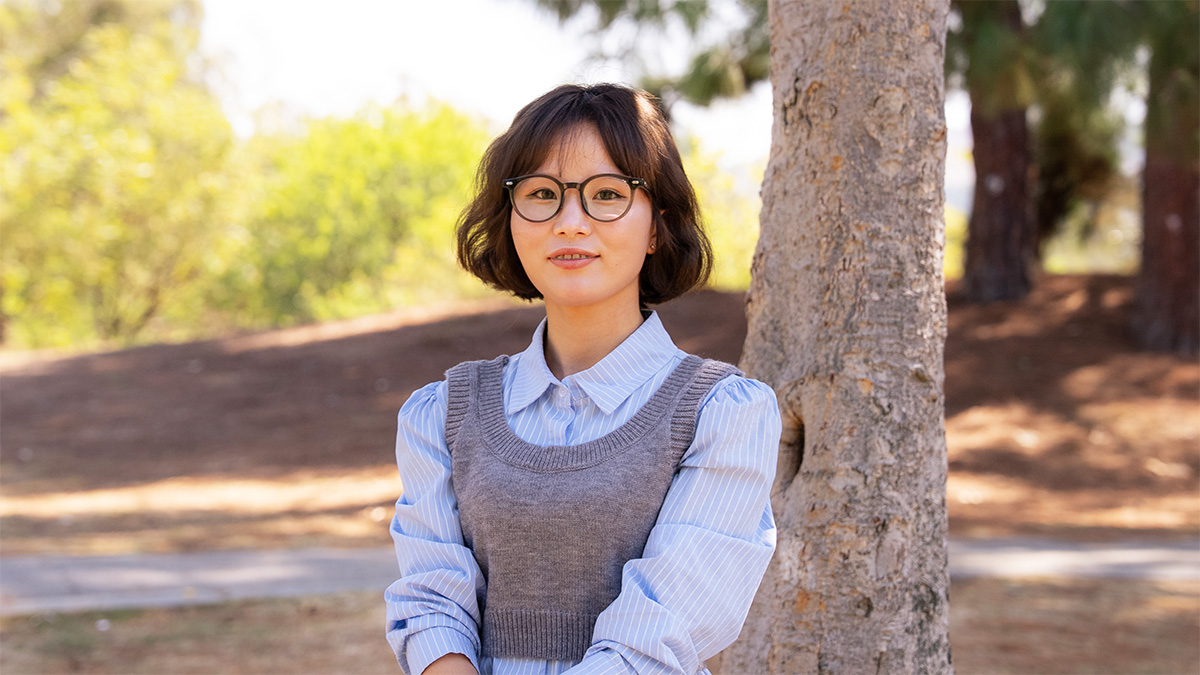
You were never supposed to know my name, see my face, or hear my story. Because I was one of 26 million lives hidden inside North Korea.
I was born in the North Korean capital, Pyongyang. The first time the government decided my future without my consent, I was only a child. My family was exiled to a rural fishing village because of my grandmother’s religion.
In the system we were living in, not even your beliefs or thoughts are truly your own.
On my way to school, youth league officers would inspect my clothes and belongings, punishing me for even a hairpin or a skirt that was a few centimeters too short. At school, we were taught that “we live in the most dignified nation in the world,” but outside those walls, people were collapsing from hunger in the streets.
Careless words overheard by a neighbor could turn into a knock at the door in the middle of the night. The radio played government broadcasts all day long, and searching other frequencies was a risk no one dared to take. This is how the North Korean government maintains control over people. By convincing you that survival depends on submission.

I returned to Pyongyang as an adult. I majored in table tennis at the Pyongyang University of Physical Education and imagined myself making a new life, built on talent and hard work.
But reality was nothing like what I had dreamed. I came to understand a deep, painful truth: In the end, everything was determined by how well you obeyed, not how hard you worked.
Frustration and emptiness built up until I finally decided to leave Pyongyang.
I wanted to help support my mother and aunt, so I moved to the coast to try and build a life of my own. My mother used all of her hard-earned life savings to buy me a small wooden fishing boat so I could start a business harvesting clams.
That boat was more than a way to make a living. It was a daily reminder of her sacrifice, and the depth of their love and trust in me. If the money I earned with my own hands could put even one less wrinkle on her forehead, that was enough for me.
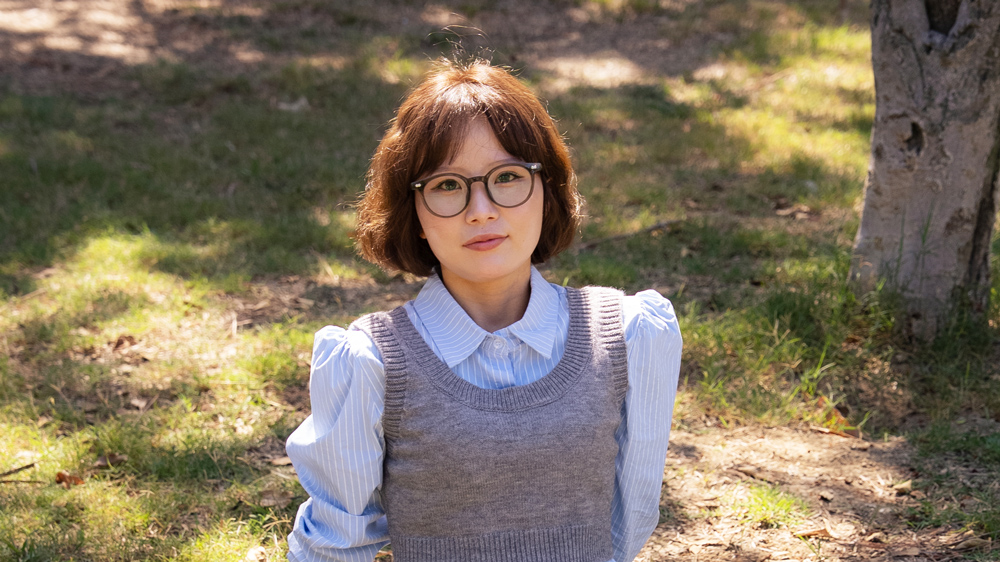
As a boatowner, I woke up early in the mornings to prepare supplies, get the crew together, and encourage them. I inspected the condition of the boat and hired people to help fix the engine and other faulty parts. Although I couldn’t go out to sea because I’m a woman, I was responsible for ensuring the ship operated smoothly.
But the harder I worked, the more government officials came to me—demanding baskets of clams and money. They justified their demands by saying: “The Party orders it,” threatening to punish anyone who refused. Every night I agonized over how to protect my people and keep my business going, and how I should respond. In those moments, I would remember the love and devotion my mother and aunt had poured into me and it gave me strength to persevere.
To escape my reality, at night I secretly watched South Korean TV shows on a television that was smuggled in from China.
My world turned upside down. With my friends who were also watching South Korean media, we would cautiously express our dissatisfaction together while also copying the hairstyles and outfits we saw in dramas. Sometimes, we would even try to mimic South Korean words or accents when talking or texting together.
But under Kim Jong Un, punishments became much more severe. Two people I knew were executed for watching and sharing foreign media. Our lives became harder, control over young people became more intense, and our resentment began to grow.
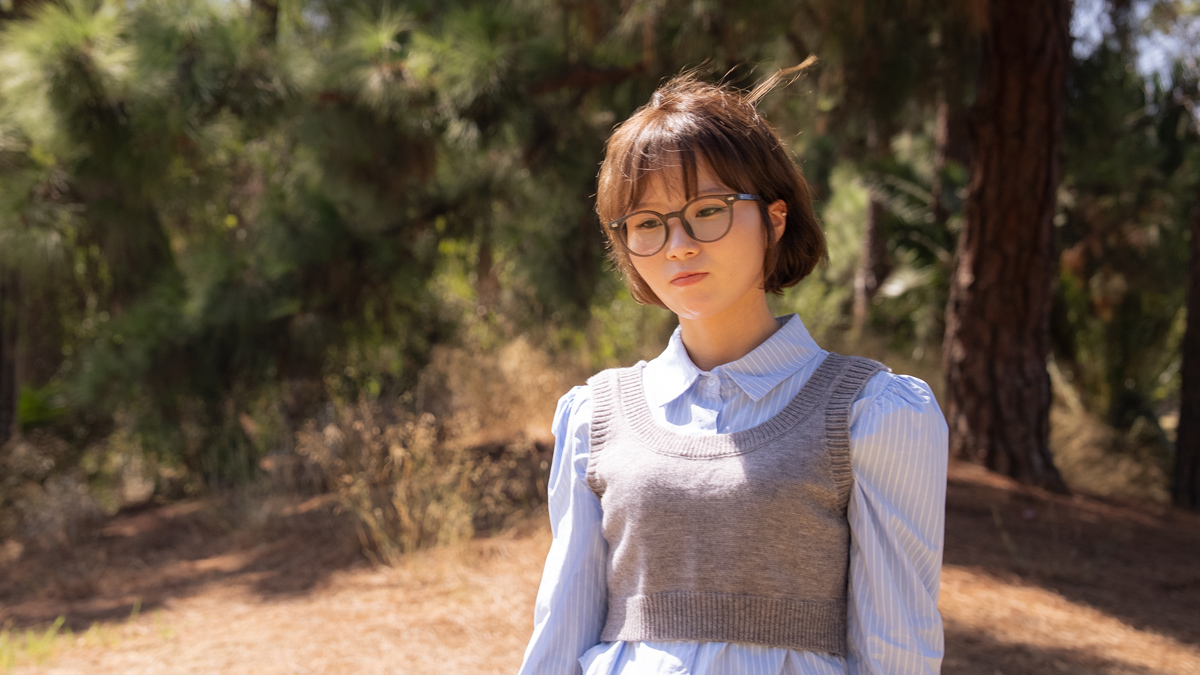
But no matter how much they tried to repress us, frustrated young people like me continued watching forbidden content as a way to forget reality. Foreign media has quietly found its way into North Korea for decades. As I grew up, it began spreading more than ever before, through USBs passed between friends or broadcasts picked up on illegal devices.
Many defectors, like me, can remember the exact episode of a TV show, a specific South Korean song, or even a traffic report, that planted the first seeds of doubt.
Of course, dramas and movies don’t tell the whole story, but they show a life that contradicts everything we were taught. And it makes you wonder: if life is so different out there, why does it have to be this way here?
I realized it doesn’t just show people that different lives exist. It gives them the belief that their life could be different. And that belief gives people the courage to choose a different future.
The thing about information is once you learn something, you cannot unlearn it. I remember watching people on my screen speak freely, laugh openly, and pursue their dreams—things that were unimaginable in North Korea. For the first time, I wondered if everything we were taught might be wrong. That doubt led to questions, and my curiosity became too strong to ignore. Now that I had seen the truth, I could never go back to the person I was before.
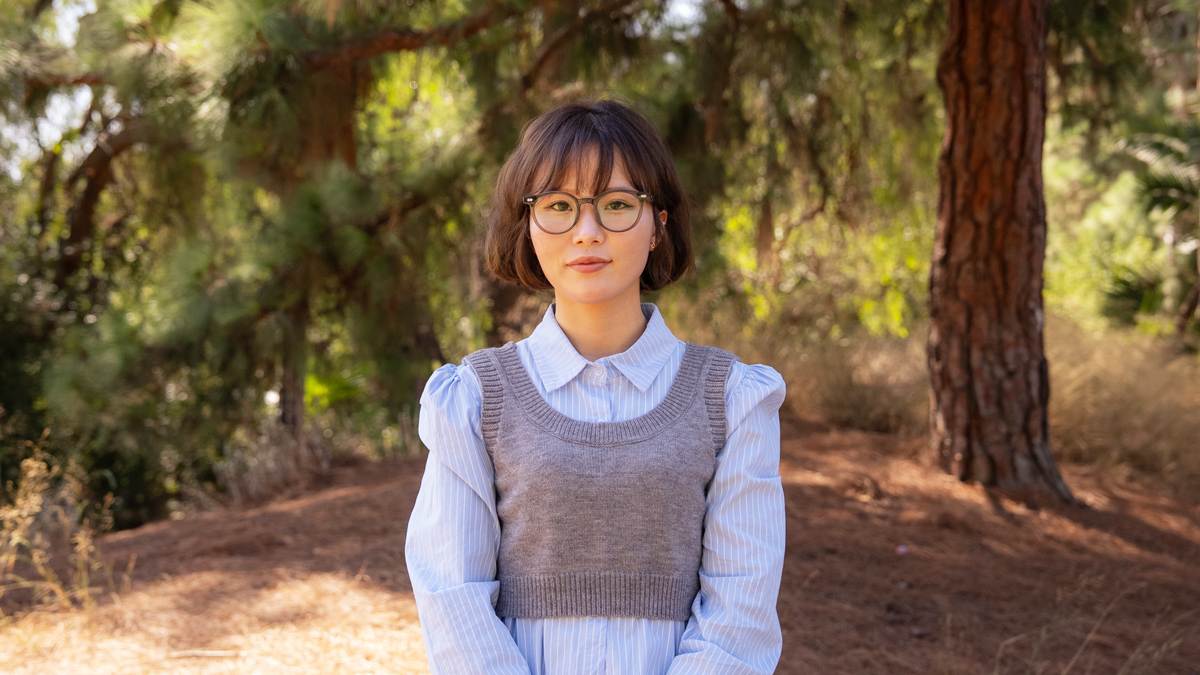
Escaping North Korea cannot be explained by the simple word “leaving.” This was especially true for me because I escaped together with my mom and my aunt. They had placed their trust in me when they gave me money for that boat. And now I was placing my trust in that boat to carry us across the sea to freedom.
I planned our escape in complete secrecy.
I bought a smuggled GPS device from China, carefully traced our route, observed the currents and tides, learned the patrol schedules of the guard boats, and figured out the blind spots of the coastal guard posts. I meticulously checked the condition of the boat and quietly prepared all the food and supplies we would need. I trained my body for the wind and the waves, and my mind for the terror of being caught.
Some nights I woke up in a panic. Other times my confidence crumbled and I thought, maybe I should give up and just accept the life I have. But in those moments, I imagined what waited at the end of the journey.
I wasn’t leaving just to stay alive. I was leaving so that I could live like a human being.
On the night we left, we climbed into my boat and pushed off into the dark water. I gripped the rudder and let the current carry us south, carefully navigating around the guard posts and patrol boats who were on the water looking for people like us.
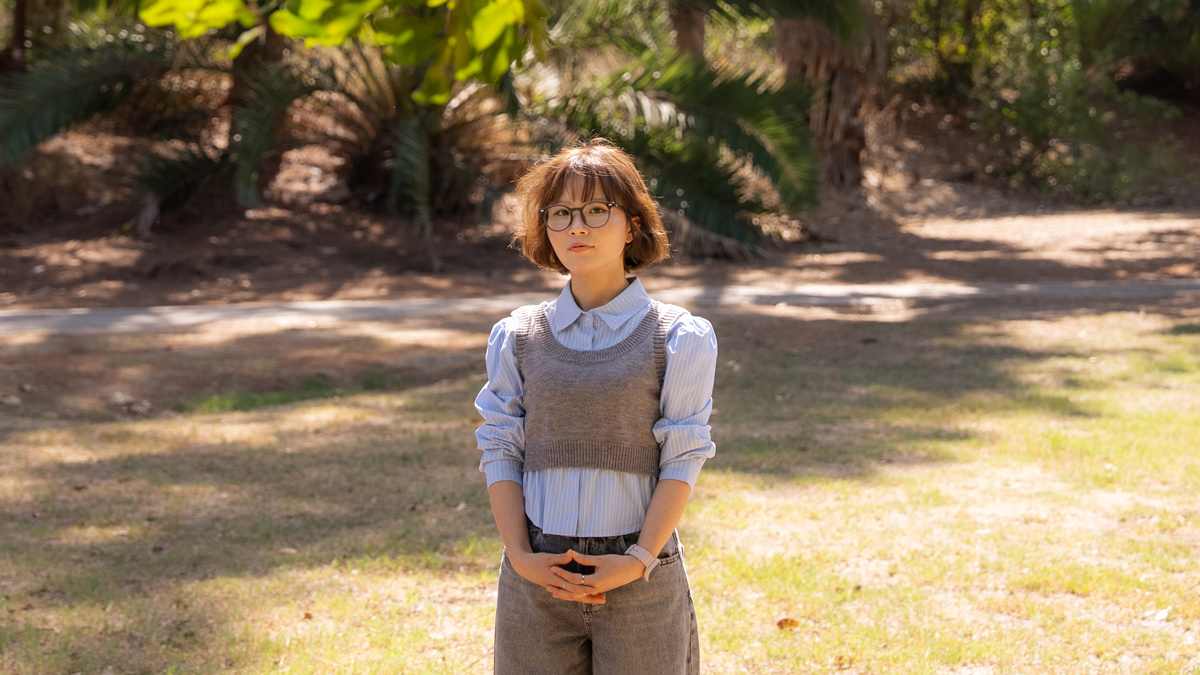
I knew what would happen if we were caught. Arrest. Endless investigations. Humiliation. Public trials. Political prison camp. And the possibility that I might lose the people I loved most in the world.
My mother and aunt were trembling with fear. I had to hide my own fear to tell them what I could only hope. We will survive. We spent the night being tossed back and forth on the East Sea. Black waves lifted our boat like a toy before smashing it down again. Every crash sent water over the sides and threatened to swallow us up.
Suddenly, a patrol ship appeared. Its lights stabbed the water, blinding us, and started coming closer and closer. It was coming for us. My chest pounded so hard I felt it might burst. I thought of the sleeping pills we had brought.
We had agreed that if capture became inevitable, we would rather take our own lives. It was a fate we preferred to execution or prison camps. As the coast guard closed in, I wondered, is it time for the pills?
But I refused to give in. We were so close. I steered away from the searchlights, surrendered the boat to the churning water, and pushed on forward.
Suddenly, the patrol vessel stopped and turned back around. They could no longer chase us. We had reached the maritime border. The sea calmed, as if it was welcoming us to freedom. And as the sun rose, we saw the outline of land.
A South Korean fisherman, hearing radio reports that North Korean patrols were in pursuit, realized we were the boat being chased. He steered his boat toward us and said, "Welcome. You are safe now."
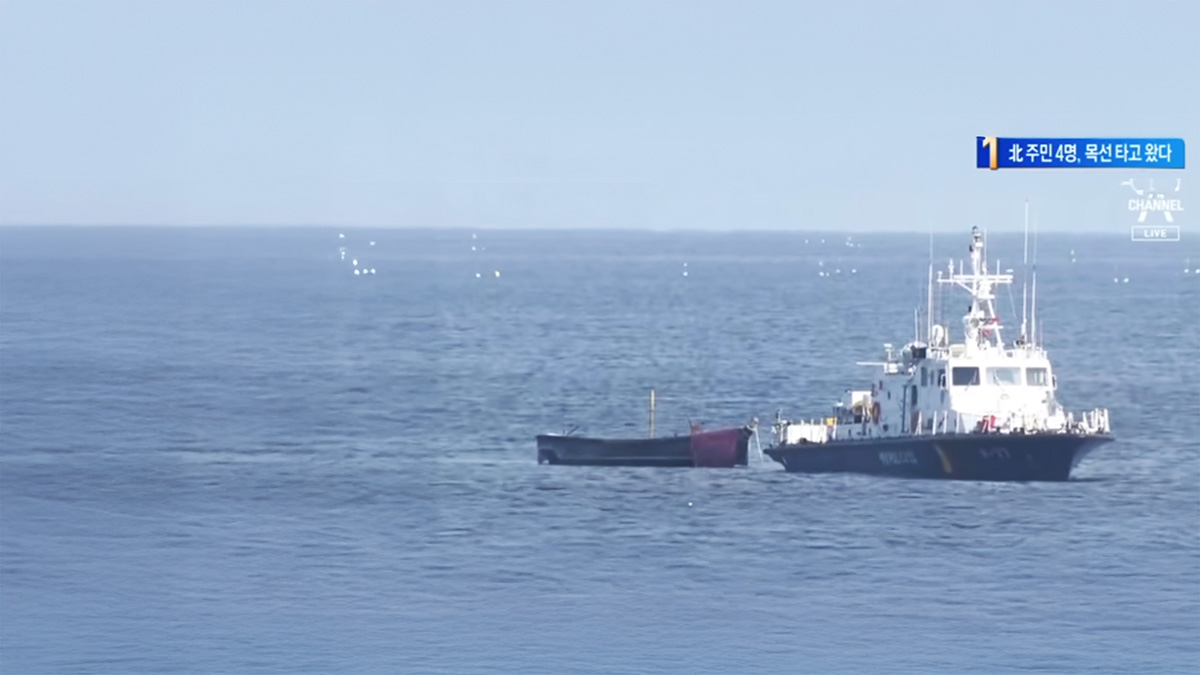
It’s been almost two years since we arrived in South Korea.
I still remember moving into our apartment and using a showerhead for the first time, experiencing hot water flowing straight from the tap. I couldn’t believe it. That day, my mother, my aunt and I took turns showering, laughing, and saying to each other, “So this is what a human life feels like.”
For the first time in my life, I could choose my studies, my job, my clothes, my hobbies—even the way I spoke—for myself. It felt like an entirely new world. We were being reborn, leaving behind a past of silence and control for a life with dignity and a future we could choose ourselves.
My mother began studying for a professional certification. And my aunt enrolled in social welfare classes to help others. I studied hard and was recently accepted into Ewha University. I have also been active in North Korean human rights activism and I even started a YouTube channel to show the world what it looks like to start a new life in South Korea.
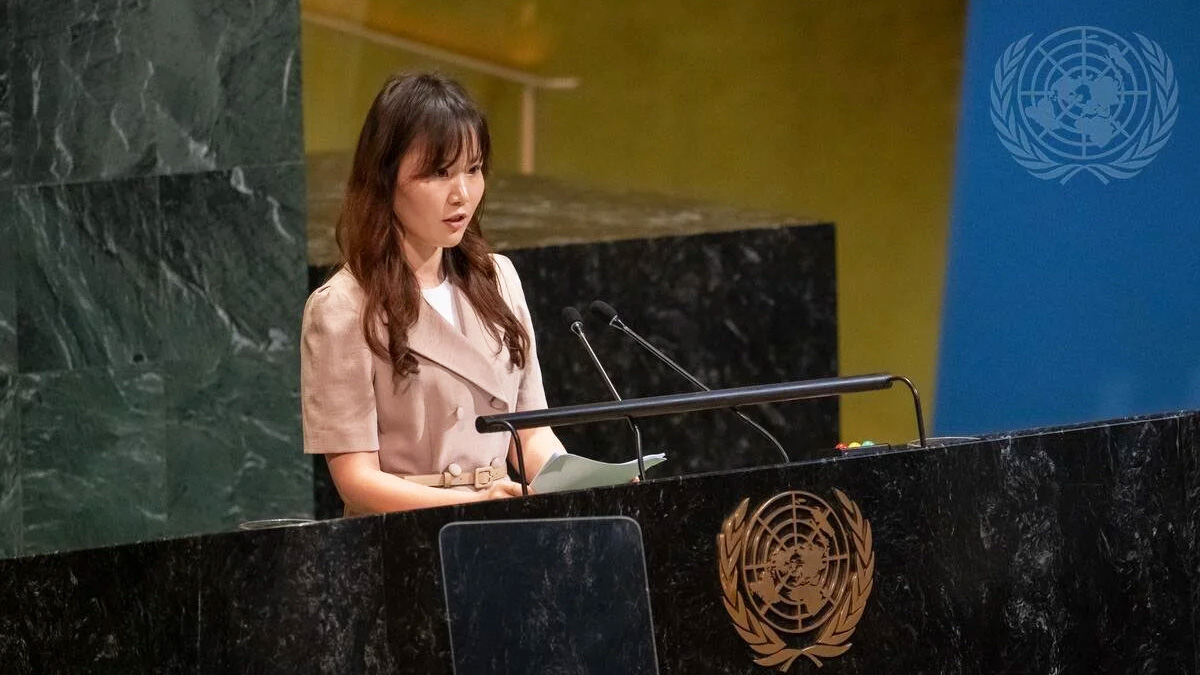
Hope is dangerous for the North Korean government. Millions of people live with anger and sadness, but even more live in resignation. Most do not realize their rights are being violated—they don’t know what “rights” are. I once believed it was normal for the state to control every part of our lives. I thought every country lived this way.
But the moment you realize life could be different, hope begins to take root. And once hope exists, change is no longer unimaginable.
My dream is that someday North Korea will be a place where young people choose their own paths, where no one is punished for their words, and where every person lives as the true owner of their life. While so much of North Korea’s reality is dark, change is already happening. And what sparks that change is information. A single truth from the outside world, a glimpse of what life could be, can plant a seed of doubt, or ignite a spark of hope.
That’s why I speak out. If I don’t tell my story, who will tell it for me? If I stay silent, will the death of my friends, and the suffering and starvation my family endured be forgotten?
Right now, in North Korea, there is someone just like me—sitting in a dark room, secretly watching a South Korean broadcast, quietly wondering: Could I also live like that?
I want my story to prove that this hope can become a reality. I want to stand in the middle of that change. Not just as someone who escaped to enjoy freedom, but as someone determined to one day share that freedom with all North Korean people.
Freedom is not given, but it is something we can achieve. With your support, we can write a future where all North Korean people are free.
Foreign media gave Gyuri a glimpse of the outside world—and the courage to seek freedom.
Increasing North Korean people’s access to outside information is one of the most effective levers for change in the country. And that is exactly what we’re doing at Liberty in North Korea
In partnership with North Korean defectors and engineers, LiNK develops tailor-made technology, tools, and content that help people inside the country access more information more safely. These glimpses into the wider world build people’s resilience to the regime’s propaganda, and emboldens them to imagine a different future for themselves and their country.
Help fuel work that’s directly supporting North Koreans driving change on the inside.




